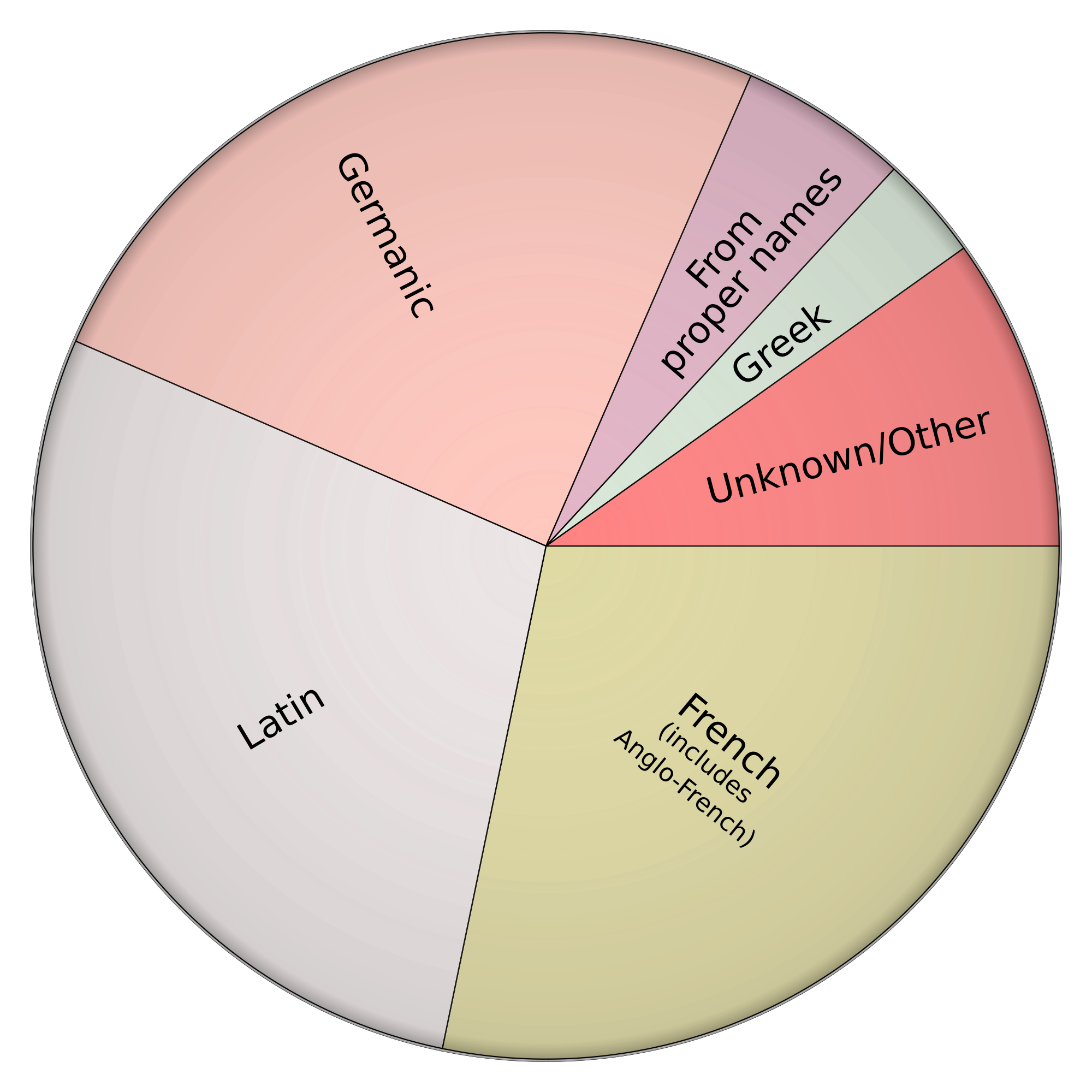Given that most conscious thought is the manipulation and interaction of words, one can safely assume that a full and robust vocabulary is a great aid to a vigorous and vibrant thought life.
One trap for "collectors" of words is that they will have a vast portfolio of flat, cardboard-cutout words. They may even create the illusion of deep thought as they mechanically rearrange their cardboard words like so many hands of playing cards in a game of rummy.
An antidote for the "collector trap" is to learn the history of words, much as a lover wants to know and cherish every historical detail of their beloved.
 |
| Origins of English words. Image from HERE |
Words tell us their history us through their components. Words have roots. Those root(s) are likely to be from Latin based languages, Greek, Germanic, Norse or the native languages from across the Empire.
Words might be compound words. They might have a prefix and/or a suffix. A little bit of knowledge about the bits and pieces that words are made of goes a long way toward turning those flat pieces of cardboard into meaty, highly textured, chewy representations of ideas.
A couple of examples:
Belladonna and I were going somewhere in the car and she asked me, "What do you hope for in the person I marry?" Her tone of voice was 100% serious. It was not a time to joke around.
I was caught a little bit by surprise. I listed some things that came to mind:
- Fidelity
- Healthy enough to take care of her and their children should events make that a necessity
- Smart enough to balance a checkbook and express himself
- To be inwardly focused enough to know himself but to be outwardly focused enough to be attentive to her, any children, his coworkers etc.
- A highly developed sense of responsibility
- To be "right" with God
Later that weekend, I had the privilege of listening to Mrs ERJ talk to Kubota about the nature and importance of being able to compromise.
Integrity
Integrity has the same root as Integrated.
Integrated: Exhibiting the properties of a coherent, harmonious whole made from a combination of discrete entities.
Antonyms: Incoherent, dissonant, disintegrated, compartmentalized.
That makes "Integrity" a word that you can chew on, a word of substance. Integrity is the man who walks like he talks. What you see is what you get.
Compromise
Root word "promise".
Prefix "Com". "Com" is seen in the words "Community" and "Common" and "Communion"
"Compromise" becomes "A promise we make together." A nuance of this definition is that it is impossible to "compromise" with a party who does not honor promises.
Some people have difficulty reconciling "Compromise" and "Integrity". Ironically, "Compromise" is only possible between two parties who both demonstrate "Integrity".
How is that for a word with "texture" and three dimensionality?
No comments:
Post a Comment
Readers who are willing to comment make this a better blog. Civil dialog is a valuable thing.